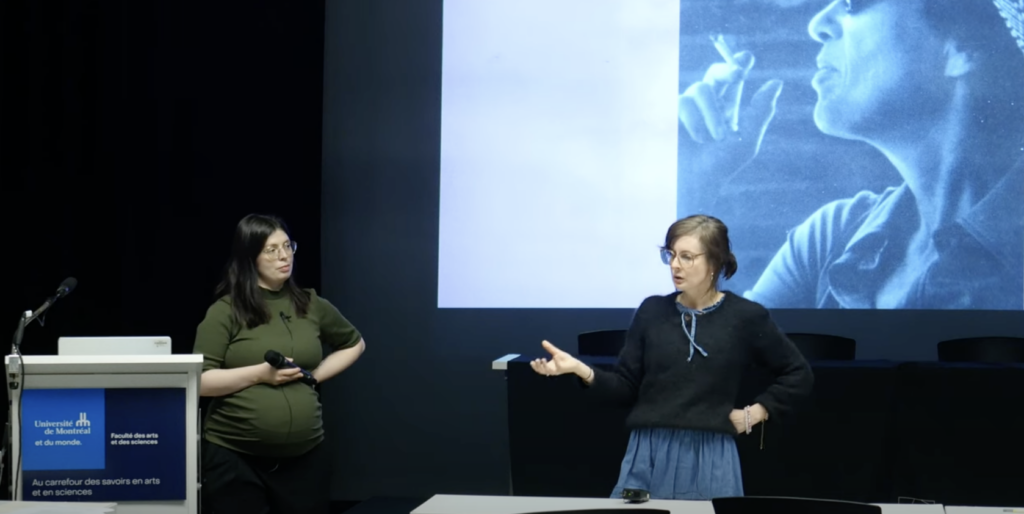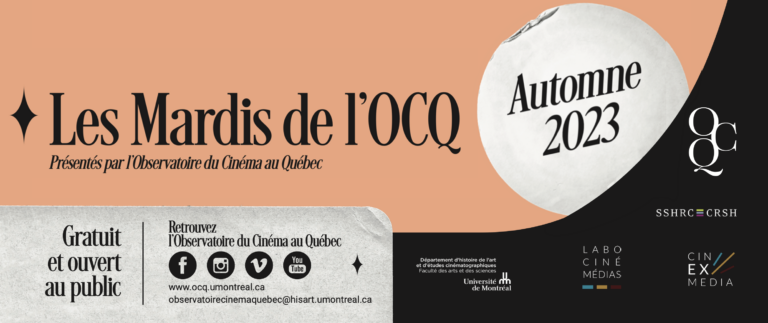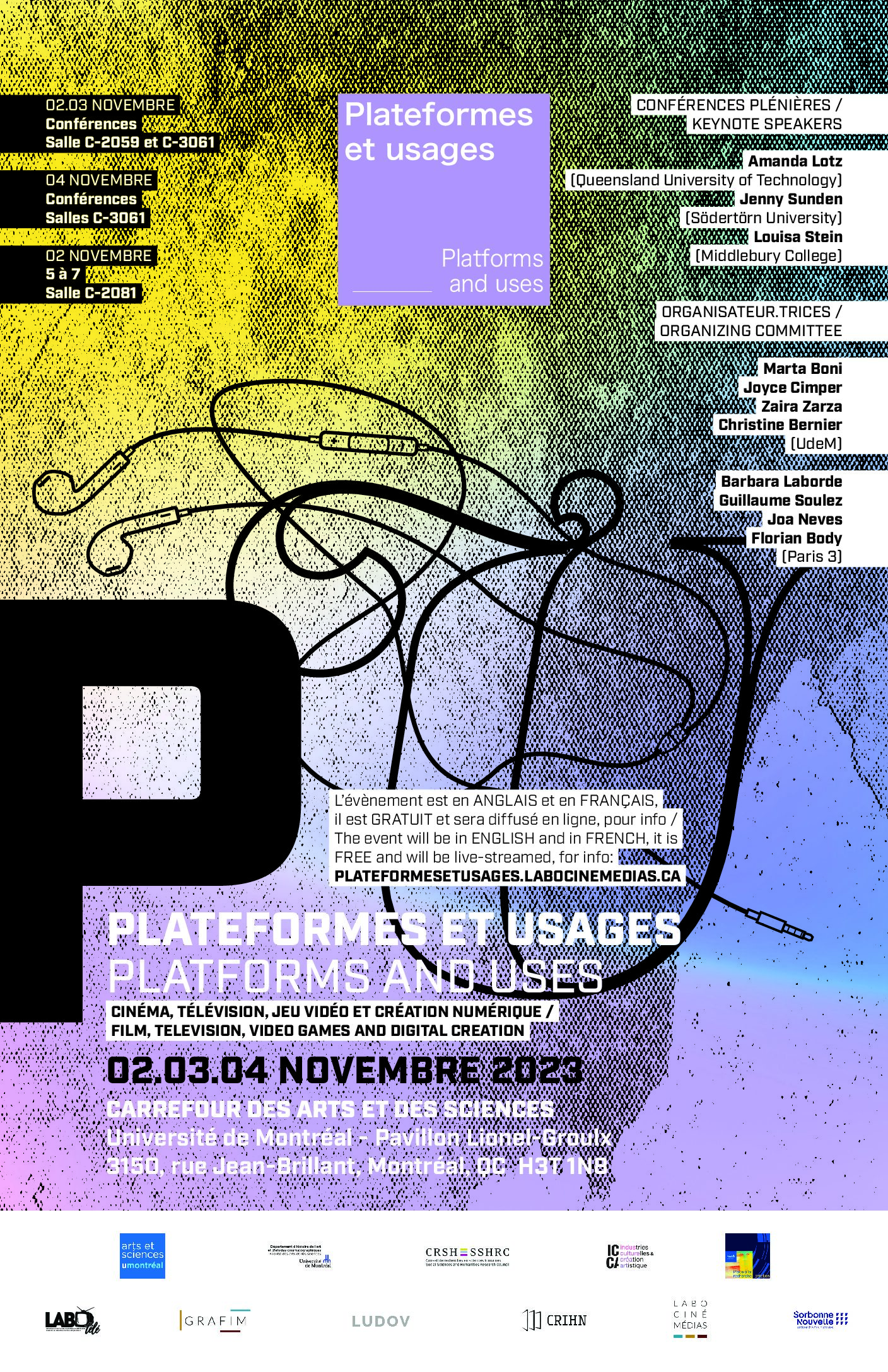Bringing together presentations on topics as varied as cultural outreach in CEGEPs, depiction of mental health issues and therapeutic video games, this event, held on 4 October 2024, was a fertile training ground.

Hugo Jacquet
On Friday 4 October 2024, the cinEXmedia partnership presented its first symposium organized entirely by and for students of audiovisual media, entitled “Contributing to Well-being in the Age of Screens: An Intersectoral Approach between Film Studies, Health Sciences and Social Sciences”. Over the course of a day, young researchers presented an overview of their work and proposed sometimes startling connections between the arts and the health sciences.
The symposium’s theme was quite in keeping with the research topics investigated at cinEXmedia, as could be seen in the presentation by Marie-Josée Saint-Pierre, a member of the partnership and a professor at Université Laval. The only non-student speaker at the event, she kicked things off with a presentation on “the outlook for collaborative research-creation”. First, she noted that all research work necessarily develops out of a “situated point of view” which indicates the particular social and historical position of an individual and the biases which may influence their work.
She then explored the “conditions of creation” in a university setting. Her thoughts arose from an examination of her own practice as a documentary filmmaker: recently, in fact, she made a web documentary, Les infirmières de la folie (2022), on the nursing profession in Quebec. Like her film, research-creation activity must seek to produce a work which “offers the possibility of contributing to the growth of knowledge while at the same time conforming to artisanal practices”, she remarked.
This is precisely what Emily Landry-Lajoie, a doctoral student at the Université de Montréal, is trying to do. She presented her work on scriptwriting “based on psychiatric images”. She hopes to create positive depictions of psychological disorders in the cinema. She thus denounces present-day practices, “which perpetuate stigmatization and disinformation”. Citing as examples the films A Beautiful Mind (Ron Howard, 2001), Black Swan (Darren Aronofsky, 2010) and Silver Linings Playbook (David O. Russell, 2012), she lamented that the term “madness” is used so often in films, thereby amalgamating a plethora of symptoms which are not in keeping with a true health disorder.
Anxious to adopt more positive practices, Landry-Lajoie has, moreover, joined the Groupe de recherche sur la scénarisation de récits individuels de parcours psychiatriques transinstitutionnels (SCRIPPT) in order to carry out scriptwriting workshops with volunteer professors and nurses. For her it is an opportunity to bring discourses on mental health up to date and to raise awareness of related social issues amongst participants by means of writing short film scripts.
Accessibility
For her part, Maude Sills-Néron, a doctoral student in charge of student affairs at cinEXmedia, reminded the audience in her opening address that the partnership’s student activities are “an opportunity to create ties between Laboratoire CinéMédias and the university community”. “We tried to bring together more general themes in keeping with the research orientations of cinEXmedia, given that this is the first symposium we have organized”, she adds. “We explore the science of screens, accessibility and whether depictions of people with an illness are representative”.
Sills-Néron also ensured that the symposium’s activities were as accessible as possible. The event, which was broadcast live online, also had live captioning for people watching online and was interpreted by two people in Quebec sign language. “We are currently developing an internal protocol to enable us to easily make use of accessibility practices in our activities”, she explains.
Instituting accessibility practices such as these has been made possible in particular through the support of the doctoral student Lisa Mélinand, research assistant in accessibility in cinema and member of the student affairs committee, and that of Victoire Bajard, research associate at the Canada Research Chair in Cultural Citizenship of Deaf People and Cultural Equity Practices.
In the wake of the success of this first student event, the student affairs committee now hopes to equip students wishing to round out their courses with free training sessions. Three methodology workshops have been planned between the fall of 2024 and winter of 2025. Two of these have already taken place, but it is still possible to take part in the session on 10 February on interviews aimed at collecting data from individuals. This session will be led by Dany Guay-Bélanger, a doctoral student in cinema studies at the Université de Montréal.


